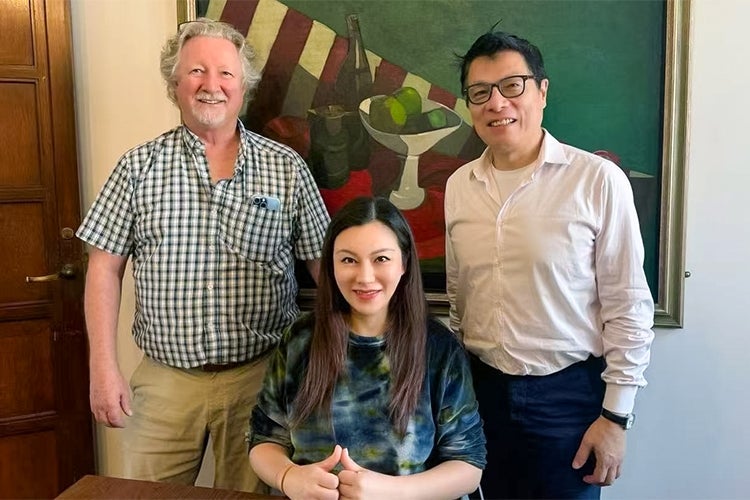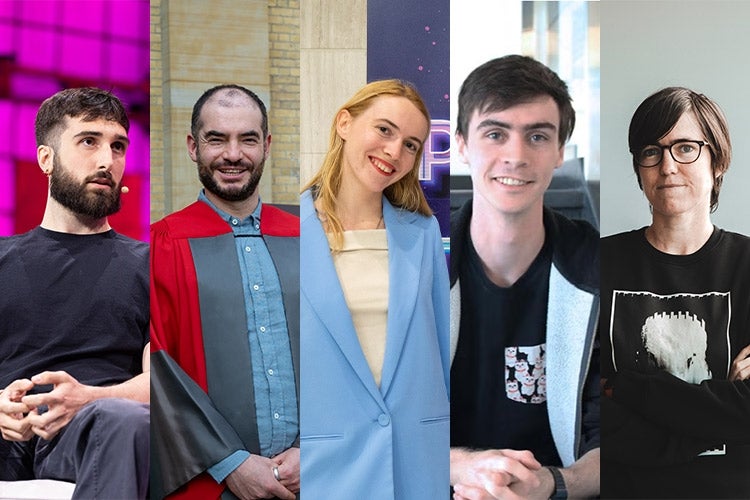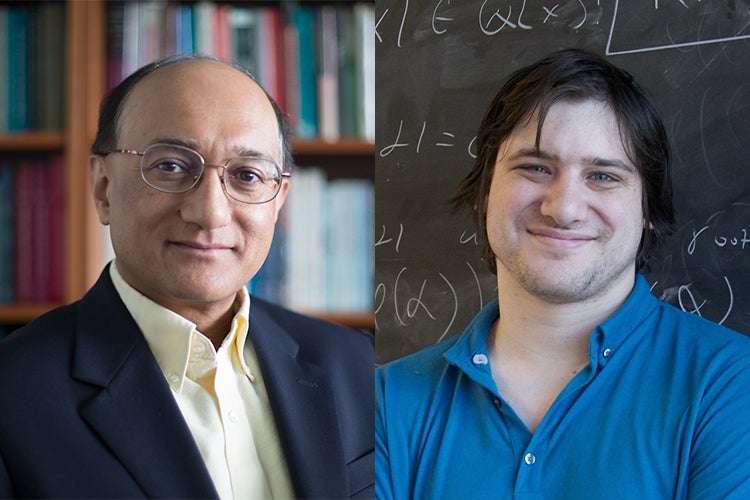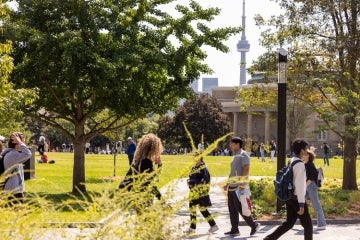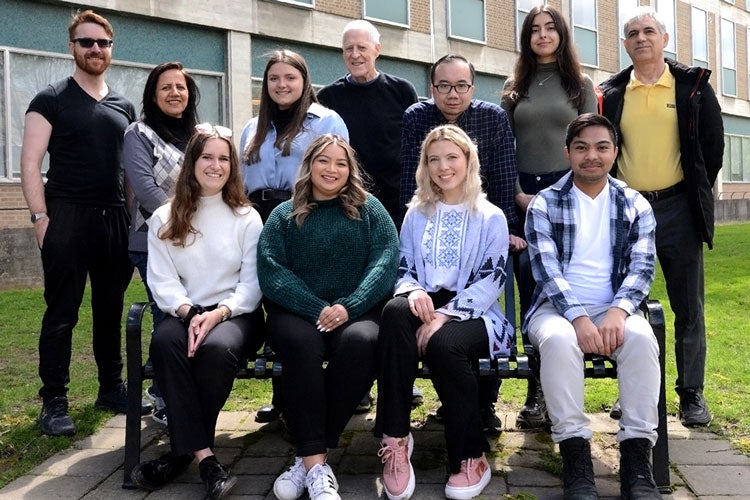
Top row from left: Brian De La Franier, Soha Ahmadi, Johanna Da Silva, (University of Rennes), Michael Thompson, Edmund Chan, Katharina Davoudian and Mahmoud Tabrizchi (University of Isfahan).
Bottom row from left: Lea Fournier (University of Rennes), Navina Lotay, Nataliia Ivanova and Aries Delica.
(photo supplied)
U of T-based research team wins Royal Society of Chemistry’s Horizon Prize
Published: June 26, 2023
An international collaboration based at the University of Toronto has won the Royal Society of Chemistry's prestigious Analytical Science Horizon Prize: Robert Boyle Prize for designing acoustic wave-based biosensors.
The Biosensor Surface Innovators team includes researchers in Slovakia and Hungary as well as U of T researchers: Professor Michael Thompson of the department of chemistry in the Faculty of Arts & Science; research associate Brian De La Franier; postdoctoral fellow Soha Ahmadi; graduate students Edmund Chan, Katharina Davoudian, Aries Delica, Nataliia Ivanova and Navina Lotay.
“Biosensors have long presented themselves as promising tools in medical diagnostics, food safety, and other fields,” Thompson says. “However, up until now, they have often been unable to perform measurements in real-world samples such as serum, urine or milk. Our work overcomes these challenges by operating a sensor at a very high frequency to improve sensitivity, and by creating small anti-fouling linkers to drastically reduce sensor fouling.”
The technology has a variety of uses, from early detection of biomarkers for diseases in a patient’s blood to detecting bacteria and toxins in food – or reducing the rate of hospital-acquired infections by minimizing the fouling of medical devices.
Receiving the award is “a tremendous recognition of the amazing effort put in by my group over the years regarding the surface chemistry challenge involving biosensor technology,” Thompson says. “Further it is particularly rewarding since it is associated with a team of dedicated colleagues from Europe. We have always been a very collaborative research group.”
Read the Faculty of Arts & Science story
Read the Royal Society of Chemistry story
